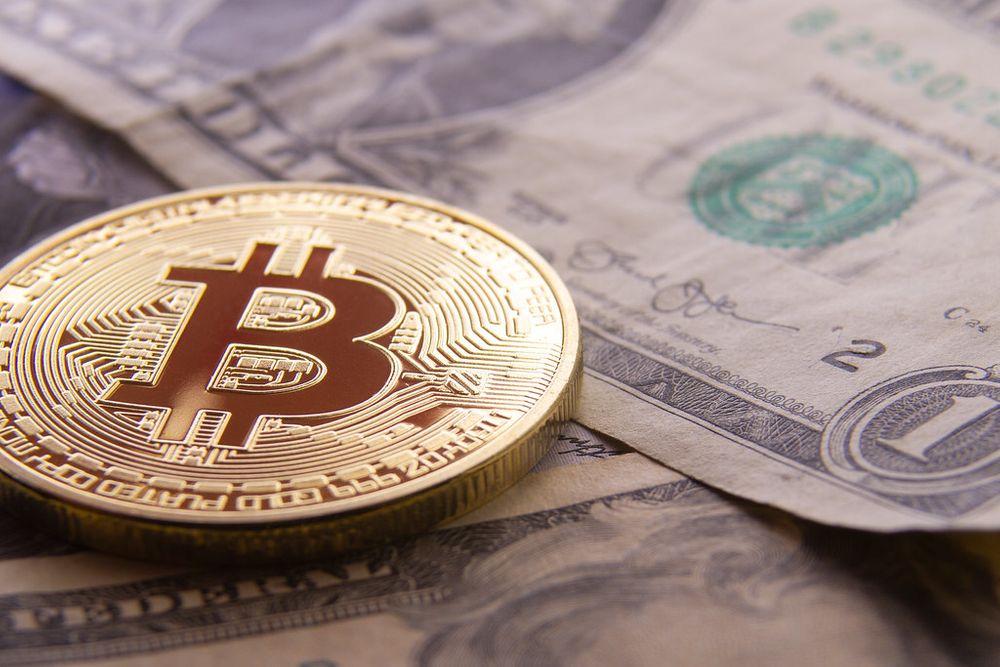The Best Ways to Buy Bitcoin with Cash
"But Coinmap!" you say, "Virtual currencies are, well, virtual! Why would I want to buy cryptocurrencies offline?!" It may seem counterintuitive, but the truth is that there are excellent reasons for wanting to trade your cash for bitcoins (BTC), Ether (ETH), Ripple XRP, or another popular crypto. What if, say, your internet goes out but you still want or need to keep up with the markets? You'd need to convert cash to crypto. Or think about if you're in a foreign country: you might know how to buy bitcoin with USD using your debit card on an online exchange like Invity.io, but your bank may block transactions overseas. You'd have to buy bitcoin locally using a local fiat currency. These are just two of the many reasons why cash and crypto actually go hand in hand.
This won't be a simple step-by-step description of how to buy bitcoins with cash at an ATM—it won't be a how-to at all, especially since there are already some pretty good guides out there. Instead, we'll attempt to explain the many ways to purchase bitcoin with cash and why doing so is more than a way to reap the combined benefits of fiat currencies and crypto—it's good for the entire crypto ecosystem.
Benefits of buying bitcoin with cash
We've already seen two cases where buying with cash may be the only option, so clearly one benefit of offline purchasing is that it's a convenient backup. But users may also prefer to make cash their primary method of purchasing for privacy reasons. Many Bitcoin ATMs and over-the-counter (OTC) traders, for example, don't just allow you to buy in cash, but they also employ less strict know your customer (KYC) regulations—meaning your side of the transaction is more or less untraceable. There will be more on this below, but the end result is that cash purchasing makes it easier to keep your finances confidential.
Many users, especially those newer to crypto, also feel that face-to-face interactions add a level of trust to their dealings. Especially if there are any problems with a purchase, issues can be sorted out on the spot.
But as crypto users, we shouldn't just think of convenience or personal privacy: we should also think of the future. For many citizens of developing countries, cryptocurrencies offer the ideal solution to broken monetary systems, yet those same people often cannot access reliable personal internet connections. Similarly, people living under authoritarian governments that don't hesitate to use internet censorship may find it difficult to use online-only crypto exchanges. By supporting and developing methods for buying crypto in person, we open up new ways for new users to buy, sell, and save their money—which may be a lifeline for millions.
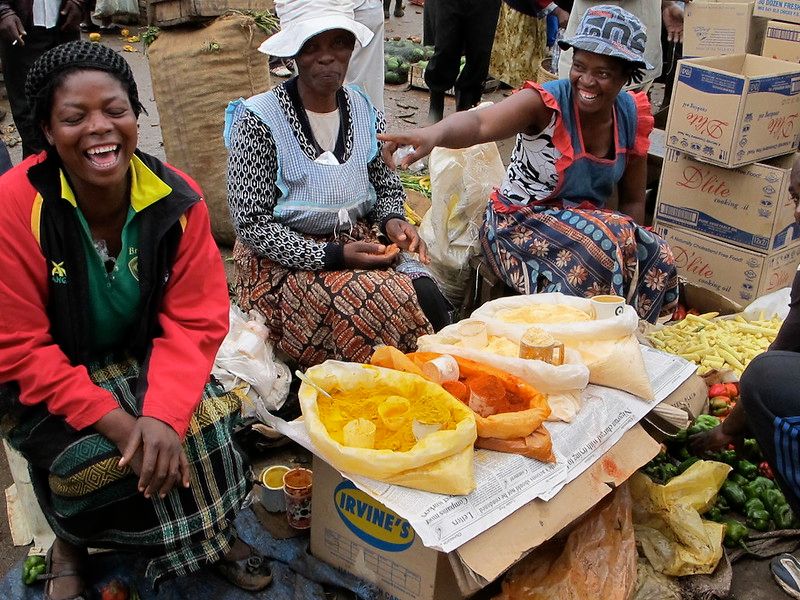
Buy bitcoin with cash at ATMs
Cryptocurrency ATMs are probably the most common way to exchange your fiat currency for crypto, and the nearest Bitcoin machine is probably closer than you think. In the US, for instance, Coinstar coin-cashing kiosks are familiar sights in most grocery stores, and they've partnered with Coinme to offer virtual coins as well. Regardless of brand, all BTC machines feature straightforward touch screens, allow you to simply feed in banknotes like a vending machine, and require that you have a crypto wallet address.
But each ATM provider's specifics are different, so check closely. Transaction fees, for example, can be a percentage of the transaction amount or a flat fee. Some kiosks require that you input your phone number at the point of sale and upload a photo ID later when claiming your funds online; others require no KYC, so you can simply scan a QR code and be on your way. But no matter the exact Bitcoin ATM you're using, they're growing in number, making it easier than ever for anyone to buy bitcoin locally. And the best part is that you can check out all the nearest Bitcoin ATM locations on the Coinmap heatmap.
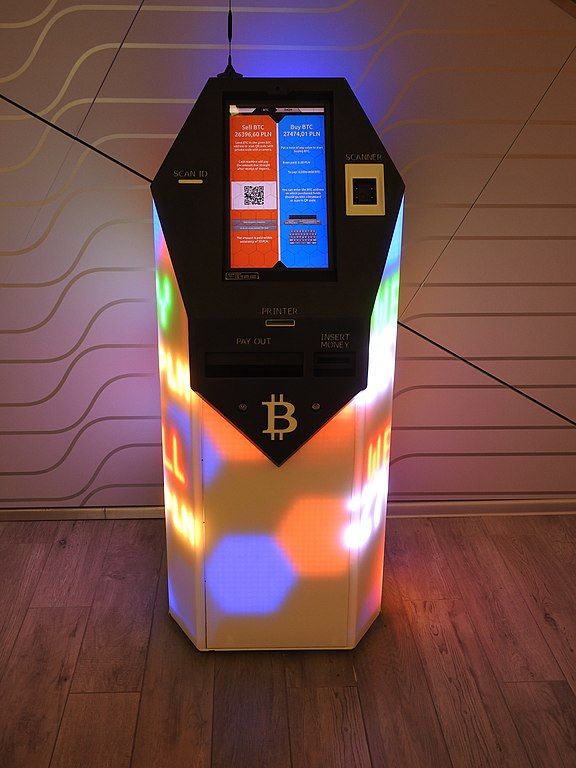
Buy bitcoin in person
Brick-and-mortar shops also offer quick physical cash trades. Each location varies based on store policies and local rules about how to buy bitcoin in person, but most operate similar to a bank. A teller will ask you how much you want to buy or sell, you'll exchange your fiat currency, and they'll complete the transaction using the wallet address you provide.
Vouchers are also an emerging trend wherein you use your fiat money to buy a token similar to a gift card. The card represents a certain amount of crypto that you then redeem online. These are common in convenience stores in Europe and Canada, though the US is also seeing more operators in this space.
The benefit here is that KYC is generally looser. Sometimes it's only required for transactions over a certain limit, and if you're asked for identification at all the staff will typically just look at your document and hand it back. This prevents your information from being uploaded to a server with questionable security. Both face-to-face and voucher locations are rather less common, but Reddit users crowdsourced an impressive international list.
It's also important to note that since face-to-face transactions require less infrastructure even than an ATM, this solution is favored in developing countries. In-person exchanges can be either formal businesses as described above, or they can be informal parts of a sort of exchange economy.
Buy bitcoin through peer-to-peer exchanges
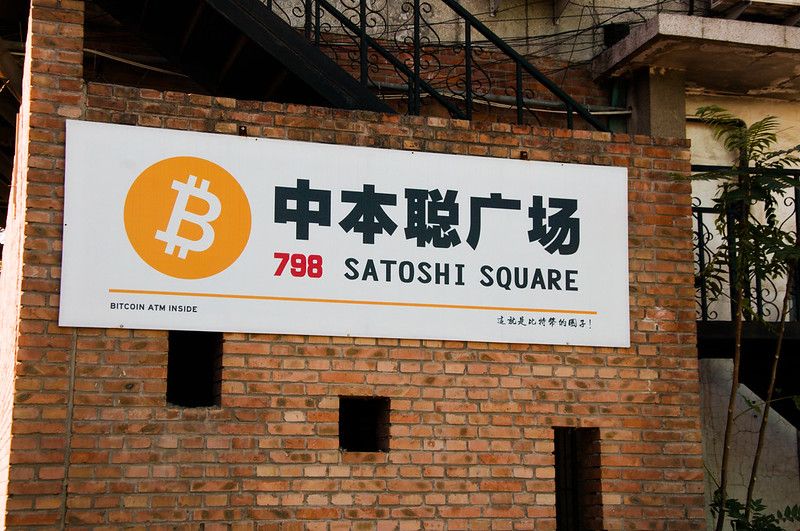
Speaking of exchange, peer-to-peer (P2P) crypto exchanges allow users who want to buy digital currencies to find those who want to sell. Many also provide spaces where users can conduct trades safely. These are particularly popular in China and other places where online crypto exchanges are tightly regulated or banned altogether. In more liberal countries, these are common features of Bitcoin meetups or face-to-face shops.
In physical P2P Bitcoin exchanges, users agree on the terms of a deal online then meet to hand over the agreed amount of fiat currency; they then remain in the same place until the transaction has been completed. If users can't meet in person, many services like LocalBitcoins.com hold the payments from each party in escrow then release the funds once everything is finished on the blockchain.
If you connect directly with other crypto users through a peer-to-peer crypto exchange but choose not to use a safe space or escrow service, it's imperative that you take your personal and financial safety seriously!
Buy bitcoin with cash deposit through a bank
This type of cash transaction is essentially a variation on the P2P model;d some of the bigger peer-to-peer services already offer this option. You still have to find and make an agreement with someone who wants to sell their crypto, but instead of meeting in person or putting your funds in online escrow, the seller provides their bank account details to the buyer. The buyer then takes their cash directly to the bank and makes a deposit through a teller as you would any other bank transaction.
The upside of this method is that there's greater security: you don't need to meet with a total stranger, the seller doesn't know which bank branch you'll go to, and since you're depositing cash you're fairly anonymous. Of course, this method is slower—the bank's transaction time has to be considered (including opening hours and long lines)—and you should still use some form of escrow service to cover all your bases.
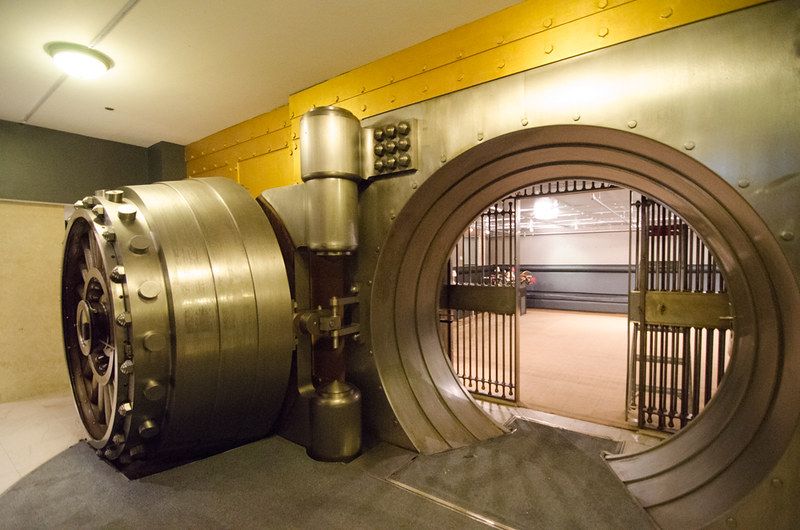
How to safely store crypto
As with all things money and crypto, storage is key—and that means wallets. You need a crypto wallet to make any sort of transaction with digital currencies, whether they involve cash or not. But all wallets are not created equal. For our money, the best way to store cryptocurrency is in a hardware wallet. These are durable, immune to most types of hacking, and have lots of convenient features that let you buy and exchange within the wallet itself if you get tired of cash transactions. The Trezor Model T and the Ledger Nano X are the best around at the moment.
So whether you're searching for a backup, added security and flexibility, or a way to help open the world of crypto up to more users, cash definitely factors in when it comes to crypto. Use the Coinmap heatmap to find the nearest ATM or OTC exchange, or explore all the places you can spend your newly purchased cryptocurrency!
Cover photo: Bitcoin cash by QuoteInspector is licensed under CC BY-ND 2.0
Coinmap gives you the best places in the world to spend cryptocurrencies. But before you spend crypto, you have to get some: our companion project Invity.io gives you the best all-in-one place to buy, exchange, and save digital currencies.

